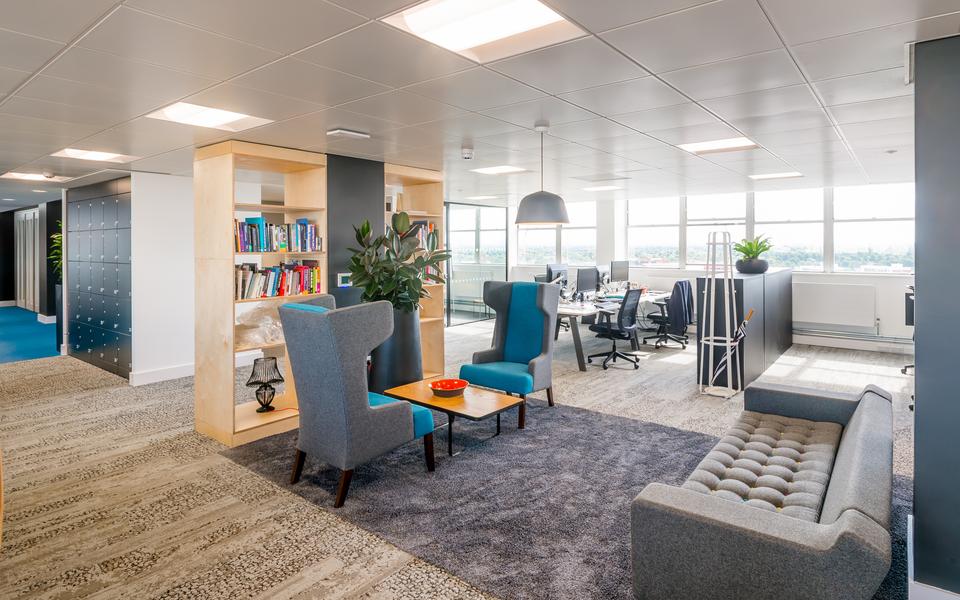Working towards a Circular Economy with the ReStart Programme
By Bruntwood

Every year, the UK discards approximately 400,000 tonnes of carpet, which is equivalent to about 256 million m². While efforts have been made to divert carpet waste from landfills, a significant portion is incinerated, contributing to carbon emissions. As part of our Sustainable Office Specification analysis, we spoke to our suppliers to find out how we can create a more circular economy through recycling and take-back schemes. To reduce our own environmental impact in this area, we’ve been working with our preferred supplier, Tarkett, to implement their take-back and recycling scheme, ReStart.
What is the ReStart Programme?
Launched in Europe and North America, the ReStart programme facilitates the collection and recycling of post-installation and post-consumer flooring materials, including vinyl, linoleum, and carpet tiles. What’s great about Tarkett is that they also take flooring products from both their own lines and those of competitors, which shows its commitment to sustainability beyond its brand boundaries.
Why Recycle?
Recycling waste emits less carbon than extracting and transforming virgin materials, which makes it a fantastic alternative to landfills and incineration. To keep track of the carbon generated and saved over a product’s life cycle, we calculate the Circular Carbon Footprint of every one of our carpet tile collections. Ultimately, recycling waste into valuable new materials places less of a burden on the world’s natural resources.
How Does It Work?
Participation in the ReStart programme involves a straightforward process:
Enrollment: We signed a ReStart agreement to initiate their participation. Collection Materials: Tarkett provides containers or pallets for collecting clean offcuts or old flooring.
Waste Collection: Once filled, we schedule a pickup with Tarkett’s local waste collection partners.
Recycling Process: The collected materials are transported to one of Tarkett’s nine dedicated recycling centres worldwide, where they are processed into high-quality raw materials for new flooring products.
This process ensures that flooring waste is diverted from landfills and reintroduced into the production cycle.
Bruntwood’s Environmental Impact and Achievements 2024
Throughout 2024, 25,564 kgs of uplifted carpet tiles were recovered from various projects across just over 6,000 m2 of our portfolio. The collected carpet tiles were sorted and assessed: from the carpet tiles that could be recycled, Bruntwood saved approximately 32.9 tonnes CO2e; then the Carpet tiles that couldn’t be recycled were sent for Re-Use in Social Housing in the UK via Tarkett’s partner Uplyfted.
Stay Connected!
Sign up to our newsletter for the latest news, updates and offers.